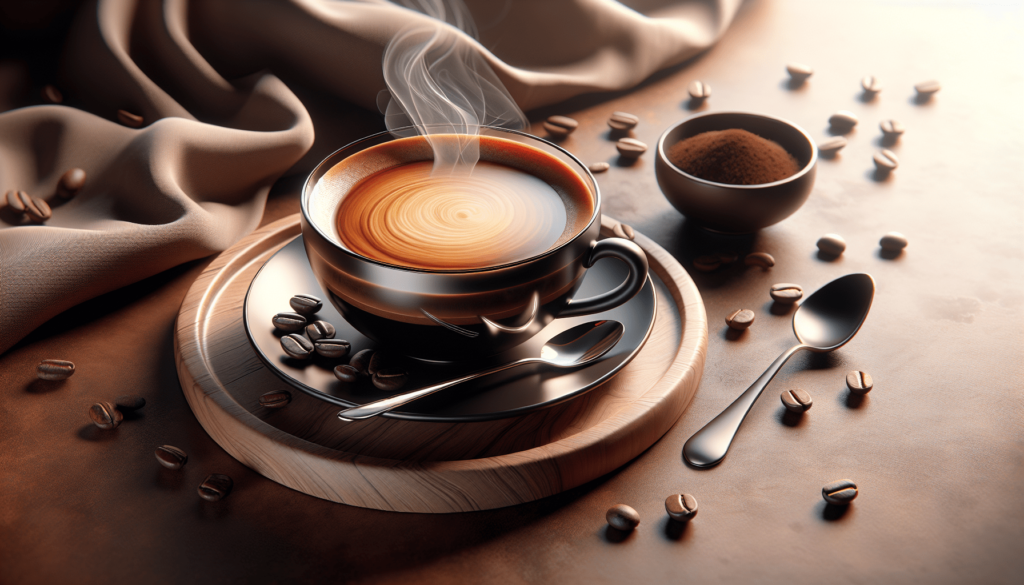Have you ever wondered which type of coffee is considered the best quality? This question may seem subjective at first, but there are some agreed-upon standards and classifications within the coffee industry that can help guide you. Let’s embark on a journey of coffee exploration, delving into the characteristics that elevate certain types of coffee to a revered status.
Understanding Coffee Quality
Defining Coffee Quality
When discussing coffee quality, it’s essential to recognize that both objective and subjective factors come into play. Objective factors include measurable aspects such as bean species, growing conditions, processing methods, and roasting techniques. Subjective factors involve personal preferences related to aroma, flavor, and body.
Key Factors Contributing to Coffee Quality
Several factors play a pivotal role in determining coffee quality. Let’s break these down to provide you with a more comprehensive picture.
-
Bean Species:
- Arabica: Known for its superior flavor and aromatic qualities, Arabica beans are generally considered the gold standard.
- Robusta: While more robust in caffeine content, Robusta is often seen as less desirable due to its bitter and less nuanced flavor profile.
-
Growing Conditions:
- Altitude: Higher altitudes typically produce beans with more complex flavors.
- Climate: The perfect balance of sunshine, rain, and temperature leads to optimal bean development.
-
Processing Methods:
- Washed (Wet) Process: Results in a cleaner cup with bright acidity.
- Natural (Dry) Process: Contributes to fruitier and more complex flavors.
-
Roasting Techniques:
- Light Roast: Preserves the bean’s original flavors – ideal for high-quality beans.
- Dark Roast: Although it can mask defects, it also diminishes the distinct origin characteristics.
Exploring Coffee Bean Species
Arabica vs. Robusta
Understanding the two main species, Arabica and Robusta, is crucial. Here’s a quick comparison table to highlight their differences:
| Attribute | Arabica | Robusta |
|---|---|---|
| Flavor Profile | Sweet, soft, with high acidity | Strong, harsh, with low acidity |
| Caffeine Content | Lower | Higher |
| Growing Altitude | High (600-2200 meters) | Low (sea level to 800 meters) |
| Price | Higher | Lower |
Specialty Arabica Varietals
Not all Arabica beans are created equal. Within Arabica, there are numerous varietals, each with unique attributes. Some of the most renowned include:
- Typica: Considered the base varietal, offering balanced and sweet flavors.
- Bourbon: Known for its complex acidity and rich flavor.
- Geisha (or Gesha): Highly sought-after for its floral and jasmine-like notes, it often commands top dollar in the coffee market.
Lesser-Known but High-Quality Varietals
Other exceptional coffee varietals you might encounter include:
- SL28 and SL34: Grown predominantly in Africa, these varietals are praised for their bright acidity and full body.
- Pacamara: A hybrid varietal known for its large beans and balanced flavor profile.

The Importance of Terroir
The Concept of Terroir
Borrowed from the wine industry, the concept of terroir emphasizes the environment’s impact on the characteristics of coffee. Terroir encompasses various factors, such as soil composition, climate, and altitude. These elements collectively influence the flavor profile of the coffee.
Renowned Coffee Regions
Some regions are legendary for their coffee production, thanks to their unique terroir. Let’s examine a few standouts:
- Ethiopia: Often regarded as the birthplace of coffee, Ethiopian beans are known for their wild and fruity flavors.
- Colombia: Celebrated for its smooth and balanced coffees, Colombia’s varied landscape allows for diverse flavor profiles.
- Jamaica Blue Mountain: Famous for its mild and slightly sweet coffees, this region produces some of the most expensive beans in the world.
Impact of Altitude
Higher altitude coffee farms generally yield beans with greater acidity and more complex flavors. This is due to the slower maturation process at cooler, elevated environments, which allows for a denser development of flavors.
Coffee Processing Methods
Washed (Wet) Process
In the washed process, the coffee cherries are pulped, and the beans are fermented and washed to remove the mucilage. This method often results in a cleaner cup with vibrant acidity.
Natural (Dry) Process
In this traditional method, the cherries are dried in the sun with the fruit still attached. This process can impart fruity and wine-like flavors to the coffee, but it can also be riskier due to inconsistent drying.
Honey Process
This hybrid method involves removing the skin of the cherries but leaving some mucilage on the beans during drying. Honey processing strikes a balance between the clean profile of washed coffees and the fruitiness of natural processed ones.

Mastering the Roast
Understanding Roast Levels
Roasting brings out the flavors locked inside the green coffee beans. The level of roast significantly impacts the taste profile of the coffee.
- Light Roast: Light brown beans with no oil on the surface, preserving the original flavors of the bean.
- Medium Roast: Balanced flavor, aroma, and acidity. Beans are medium brown with no oil.
- Dark Roast: Dark brown to almost black beans with an oily surface. The roast flavor dominates, often masking the bean’s origin characteristics.
The Craft of Roasting
Roasting is both an art and a science. Master roasters can manipulate various variables such as time and temperature to enhance the beans’ best qualities. This expertise is crucial in transforming high-quality beans into an exceptional cup of coffee.
Conclusion
So, which coffee type is considered the best quality? There is no definitive answer since quality is multi-faceted and influenced by numerous factors, including bean species, growing conditions, processing methods, and roasting techniques. However, most coffee aficionados agree that Arabica beans, especially those with distinctive varietals like Geisha or Bourbon, grown at high altitudes with meticulous processing and roasting methods, are often among the best quality coffees.
When seeking the highest quality coffee, consider not only the type of bean but also the dedication and expertise involved in every stage of its journey from farm to cup. Happy brewing!
